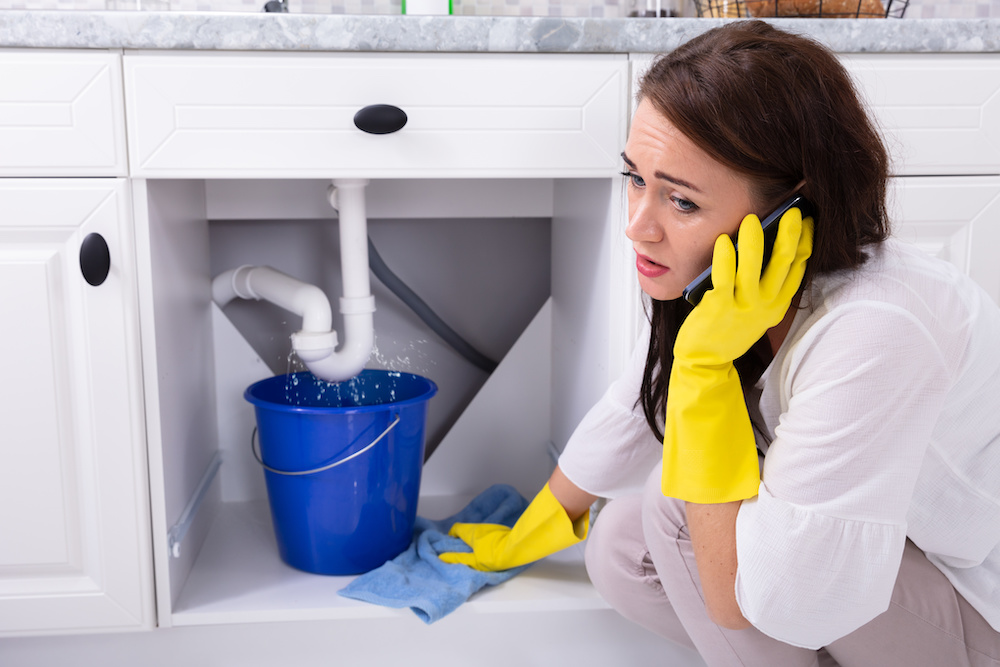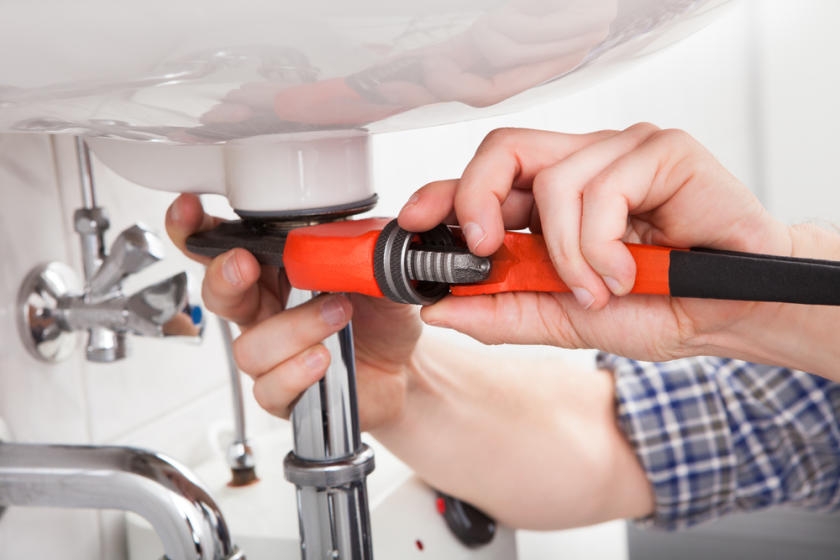Critical Fixes: What to Do Until Help Arrives
Critical Fixes: What to Do Until Help Arrives
Blog Article
Have you been trying to find critical info around Expert Tips for Emergency Plumbing Repairs?

Plumbing emergency situations can strike at any moment, causing stress and possible damages to your home. Whether it's a burst pipeline, a clogged up drain, or a dripping tap, understanding how to take care of the circumstance up until an expert plumbing arrives can save you from more difficulties. This post supplies vital emergency pipes ideas to assist you mitigate damage and reclaim control throughout a plumbing crisis.
Turn Off the Water
The initial step in any pipes emergency is to shut off the water. For localized problems, such as a dripping faucet or toilet, turn off the valve near the component. When it comes to a significant leak or burst pipe, situate your home's major water shut-off valve and turn it off immediately. Understanding the place of these valves beforehand can conserve useful time during an emergency.
Address Tiny Leakages with Short-term Fixes
Tiny leakages can rapidly become significant troubles if left untreated. Use these temporary solutions up until professional aid shows up:
While these fixes aren't irreversible, they can help decrease water loss and damage.
Unclog Drains Pipes Safely
A clogged up drainpipe can be a discouraging and unpleasant problem. Here's exactly how to tackle it:
If these approaches don't function, prevent making use of extreme force, as it might get worse the blockage.
Take Care Of Overflowing Toilets
An overflowing commode can trigger prompt mayhem. Below's what you must do:
Turn off Your Hot Water Heater
In specific emergencies, such as a ruptured pipeline, it's smart to shut down your water heater. This stops getting too hot or damage to the device when water stops streaming. Turn off the power supply to the hot water heater (electrical or gas) and let it cool to stay clear of potential risks.
Momentarily Quit a Burst Pipe
A burst pipeline can bring about significant water damage in mins. To minimize the concern:
Call a professional plumber right away to attend to the trouble completely.
Take Care Of Frozen Pipes Carefully
In colder climates, frozen pipes are a common emergency. If you think a frozen pipe:
Protect against Additional Damage
Taking fast activity to reduce damage can save you time and money in the future. Below's exactly how:
. Have an Emergency Situation Plumbing Kit
Prepare a fundamental plumbing emergency situation kit to handle minor concerns efficiently. Your kit should consist of:
Having these devices handy can make a significant distinction in your capability to manage emergency situations.
Know When to Call an Expert.
While quick fixes can aid briefly, certain pipes issues call for instant specialist interest. Call a plumbing if:.
Promptly calling a professional makes sure the issue is solved correctly and stops more problems.
Verdict.
Plumbing emergency situations can be frustrating, yet with the right understanding and tools, you can handle the scenario effectively until assistance shows up. By switching off the water supply, addressing small leaks, and utilizing short-lived repairs, you can decrease damages and keep your home safe. Remember, these ideas are momentary services; constantly get in touch with a licensed plumbing to manage the origin of the problem. Preparation and quick reasoning are your ideal allies in any plumbing emergency.
Expert Tips for Emergency Plumbing Repairs
Plumbing emergencies can be incredibly stressful and inconvenient. Whether it’s a burst pipe, a clogged drain, or a leaky faucet, these common plumbing emergencies need immediate attention to prevent further damage to your home. But before you panic, it’s important to understand the basics of plumbing repairs and the steps you can take to address these emergencies. In this article, we will share some expert tips to help you navigate through these situations and minimize potential water damage.
Identifying Common Plumbing Emergencies
Leaky pipes and faucets Clogged drains and toilets Burst pipes Low water pressure Water heater problems Essential Tools for Plumbing Repairs
Plunger: Useful for unclogging toilets and drains Adjustable wrench: Needed for tightening or loosening nuts and bolts Pipe wrench: Ideal for gripping and turning pipes Tape measure: Necessary for accurate pipe measurements Plumber’s tape: Helps create watertight seals Understanding Emergency Plumbing Services
Emergency plumbing services are designed to provide immediate assistance for unexpected plumbing issues that can cause significant damage to your home, business, or health. These services are typically available 24/7 and are staffed by experienced plumbers who can quickly diagnose and repair a wide range of plumbing problems.
When a plumbing emergency strikes, time is of the essence. Whether it’s a burst pipe flooding your basement or a gas leak posing a serious risk, emergency plumbing services ensure that help is just a phone call away. These professionals are equipped with the tools and expertise to handle any situation, minimizing damage and restoring your plumbing system to proper working order.
What Constitutes a Plumbing Emergency?
Burst pipes or water supply lines: These can cause extensive water damage and need immediate repair to prevent flooding. Gas leaks or suspected gas leaks: Gas leaks are extremely dangerous and require prompt attention to avoid potential explosions or health hazards. Sewer backups or overflows: These can lead to unsanitary conditions and significant property damage. Clogged drains or toilets causing water to overflow: Overflowing water can damage floors, walls, and other structures. Leaks or water damage causing structural damage: Persistent leaks can weaken the structural integrity of your home or business. No hot water or heating: A lack of hot water can be more than an inconvenience, especially in colder months. Common Causes of Plumbing Emergencies
Aging or corroded pipes: Over time, pipes can deteriorate, leading to leaks or bursts. Improperly installed or maintained plumbing fixtures: Faulty installations or lack of maintenance can result in unexpected failures. Tree roots or other debris infiltrating your sewer line: Roots can grow into pipes, causing blockages and backups. Frozen pipes or water supply lines: In colder climates, pipes can freeze and burst, leading to significant water damage. High water pressure or sudden changes in water pressure: Excessive pressure can strain pipes and fixtures, causing them to fail. Natural disasters such as floods or earthquakes: These events can disrupt your plumbing system and cause severe damage. Steps to Minimize Water Damage
Locate the water shut-off valve: Knowing where the valve is can help you quickly cut off the water supply to the affected area. Turn off the water heater: If there’s a risk of water coming into contact with the heating element, make sure to turn off the water heater to avoid potential accidents. Open faucets and drain pipes: By opening faucets and drain pipes, you can relieve pressure and empty any standing water. Collect and contain water: Use towels, buckets, or bins to collect water and prevent it from spreading to other areas of your home. https://leecountyplumbingandwellservice.com/expert-tips-for-emergency-plumbing-repairs/

Do you like reading about What to Do During a Plumbing Emergency? Make a short review below. We will be delighted to hear your responses about this write-up. We are looking forward that you visit us again before long. Sharing is nice. Who knows, you may be helping someone out. I appreciate your readership.
Visit My Site Report this page